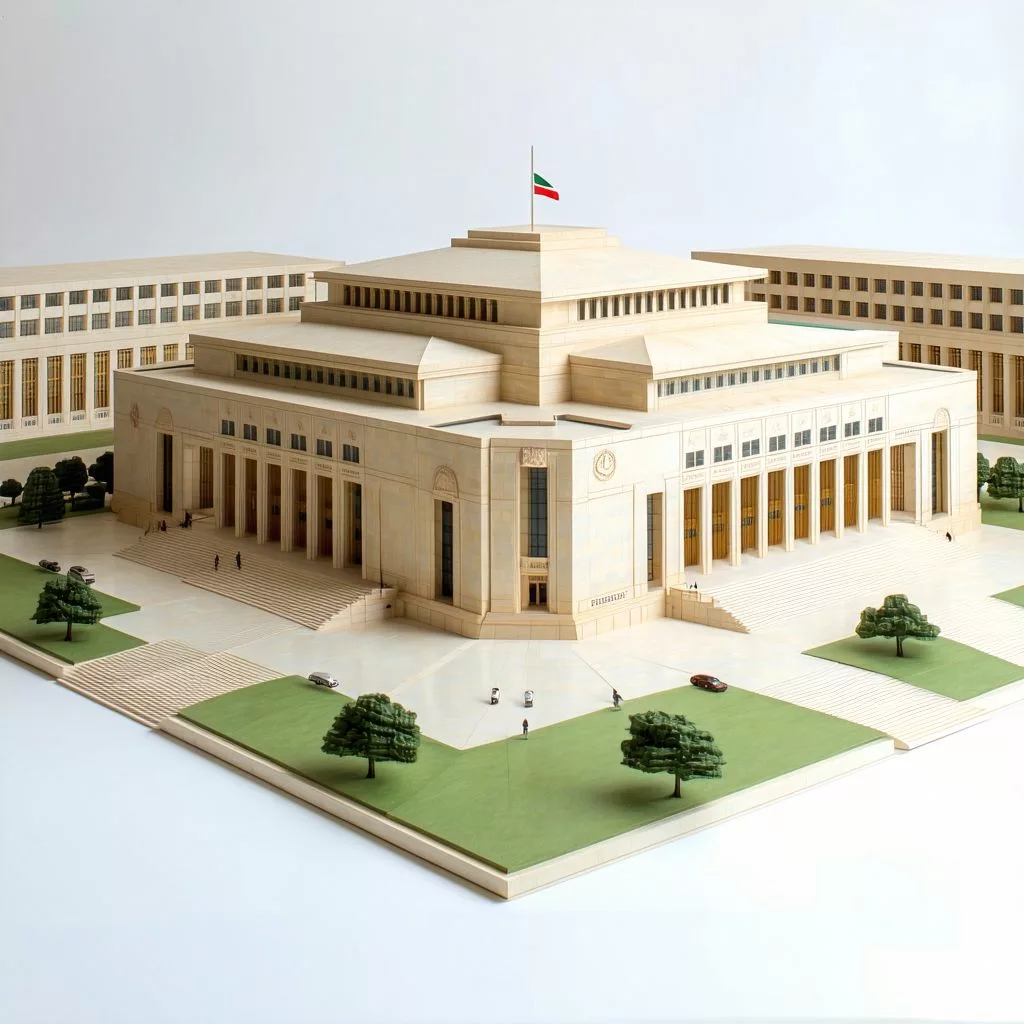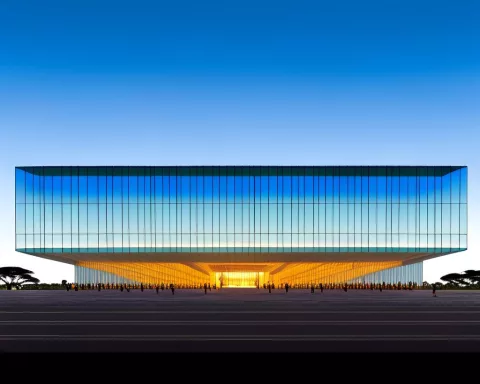In November 2024, South Africa’s Standing Committee on Appropriations gathered to discuss the 2024 Division of Revenue Bill, highlighting the nation’s struggle with budget challenges. Key issues included local government mismanagement, harmful education funding cuts, and deep-rooted inequalities affecting communities. Chairperson Mmusi Maimane led discussions with various groups, emphasizing the urgent need for better financial practices and fair education funding. As diverse voices came together, the event shone a light on South Africa’s complex history and its hope for a brighter, more equal future. The decisions made here could change lives, making the process crucial for the nation’s path ahead.
What are the key challenges in South Africa’s budgetary landscape?
South Africa’s budgetary landscape faces several challenges, including:
– Municipal Financial Mismanagement: Issues like wasteful spending and underspending hinder local governance.
– Education Funding Cuts: Proposed budget cuts risk teacher layoffs, exacerbating educational inequities.
– Socio-economic Disparities: Resource distribution continues to reflect historical inequities, impacting long-term growth.
In the heart of South Africa’s legislative hub, a pivotal event took place in mid-November 2024. The Standing Committee on Appropriations, a vital organ of the South African Parliament, initiated public hearings on the 2024 Division of Revenue Bill. This gathering reflected the country’s ongoing efforts to balance resource distribution amid enduring challenges and budding prospects.
Gathering of Diverse Voices
Leading the committee was Chairperson Mmusi Maimane, who welcomed a wide array of participants to these deliberations. The event drew representatives from the South African Local Government Association (SALGA), the trade union federation COSATU, education advocacy groups such as Equal Education and the Equal Education Law Centre, and esteemed scholars from the University of KwaZulu-Natal. This assembly illustrated the complexity of budget discussions in South Africa, as economic priorities intersected with pressing social needs.
Under Maimane’s stewardship, the committee aimed to synthesize the diverse viewpoints into a cohesive report. This document is destined for the National Assembly as part of the adjustment budget, paving the way for the 2025/26 budget presentation scheduled for February. The process highlights the intricate dance of planning, consultation, and decision-making inherent in national budget formulation.
Challenges in Local Governance and Education
One of the pressing issues brought to the fore was the management of municipal finances. The committee delved into chronic problems like wasteful spending, underspending, and the mounting ESKOM bill. These concerns underscored systemic weaknesses in local governance. Municipalities, often flagged by the Auditor-General for financial mismanagement, face an uphill battle when seeking increased funding. This situation points to an urgent need for reforms in how these local entities handle their finances.
Education emerged as another focal point, capturing significant attention during the hearings. Proposed budget cuts threatened potential teacher layoffs, a prospect opposed by many participants. Maimane, particularly vocal on this issue, questioned the rationale behind targeting teaching positions for cuts, advocating for reductions in less critical areas. He stressed that education deserves enhanced funding given its crucial role in shaping the nation’s future.
His remarks underscored the ongoing struggle against educational inequities: “We are inventing a new apartheid.” Despite the legal end of segregation, Maimane warned about educational disparities that could perpetuate social divisions. His comments resonate within a historical narrative where education has served as both a liberating force and a tool for control. The notion of “labour-sending areas” in rural regions due to poor educational resources highlights the need for policies that address past injustices and promote true equality.
Broader Socio-economic Narratives
The committee’s discussions reflect South Africa’s broader socio-economic narrative, where the remnants of apartheid still influence policy debates and governance priorities. Education continues to be a battleground for differing visions of the country’s future. Advocacy groups like Equal Education stress the critical need for fair resource distribution to ensure that every student, regardless of their socio-economic status, receives quality education. Their submissions, driven by a commitment to social equity, challenge policymakers to look beyond immediate fiscal limitations and consider the long-term ramifications of their choices.
Trade unions, represented by COSATU, added another dimension to the hearings. Their perspectives, shaped by the daily struggles of workers across various sectors, highlighted the necessity of a budget that fosters job creation and economic stability. They argued for a balanced approach that considers both the immediate needs of the workforce and the fundamental changes required to combat systemic inequalities.
Throughout the hearings, academics from the University of KwaZulu-Natal offered scholarly insights into the economic and social dynamics at play. Their analyses provided a broader understanding of the challenges facing South Africa, drawing from historical trends and current data to inform policy discussions. The fusion of academic theory and practical policy considerations emphasized the importance of evidence-based decision-making in crafting effective budgetary strategies.
A Vision for the Future
The hearings on the Division of Revenue Bill encapsulated South Africa’s ongoing struggle to reconcile its complex past with its aspirations for the future. The event underscored the essential role of public participation in democratic governance, reminding all stakeholders of their collective duty to shape a just and equitable society.
As the Standing Committee on Appropriations continues to engage with more stakeholders for additional submissions, the nation watches closely, keenly aware that the decisions made within Parliament’s walls will influence the lives of millions. These deliberations will shape the trajectories of communities and the futures of individuals across South Africa, underscoring the profound impact of thoughtful and inclusive governance.
FAQ: Navigating South Africa’s Budgetary Landscape
What are the key challenges in South Africa’s budgetary landscape?
South Africa’s budgetary landscape faces several significant challenges, including:
– Municipal Financial Mismanagement: Issues such as wasteful spending and underspending hinder local governance.
– Education Funding Cuts: Proposed budget cuts risk teacher layoffs, exacerbating educational inequities.
– Socio-economic Disparities: Resource distribution continues to reflect historical inequities, impacting long-term growth.
Who led the discussions during the hearings on the Division of Revenue Bill?
The discussions were led by Chairperson Mmusi Maimane, who emphasized the need for better financial practices and fair education funding. He welcomed diverse participants from various sectors, including local government associations, trade unions, education advocacy groups, and scholars.
What were the main topics addressed during the public hearings?
The public hearings addressed critical issues, including:
– Municipal financial management: Highlighting chronic problems like wasteful spending and the ESKOM bill.
– Education funding: Discussing the potential impact of budget cuts on teacher employment and the quality of education.
– Socio-economic inequalities: Addressing how past injustices continue to affect resource distribution and governance priorities.
How does the public participate in the budgetary process?
Public participation is integral to the democratic governance process. The hearings allowed various stakeholders, including advocacy groups, trade unions, and academics, to present their perspectives and challenge policymakers to consider the long-term effects of budgetary decisions on society.
What role do advocacy groups play in the budget discussions?
Advocacy groups, such as Equal Education, play a crucial role in highlighting the need for fair resource distribution to ensure quality education for all students. They advocate for policies that address educational inequities and challenge policymakers to look beyond immediate fiscal limitations.
What is the significance of the Division of Revenue Bill discussions for South Africa’s future?
The discussions on the Division of Revenue Bill are pivotal as they aim to reconcile South Africa’s complex history with its aspirations for a more equitable future. Decisions made during these hearings will significantly influence resource allocation, community trajectories, and the lives of individuals across the nation, emphasizing the importance of thoughtful and inclusive governance.












